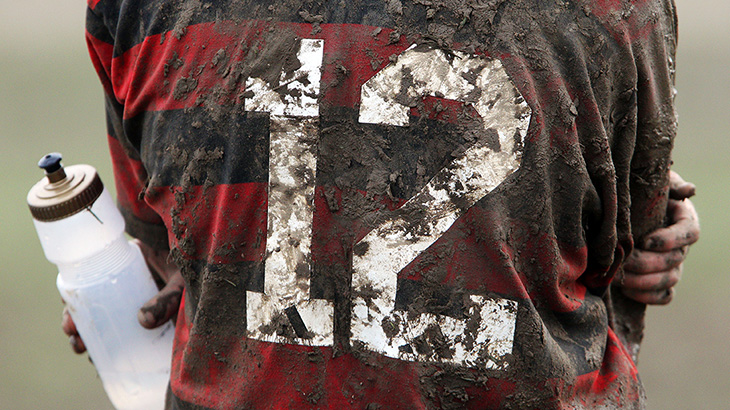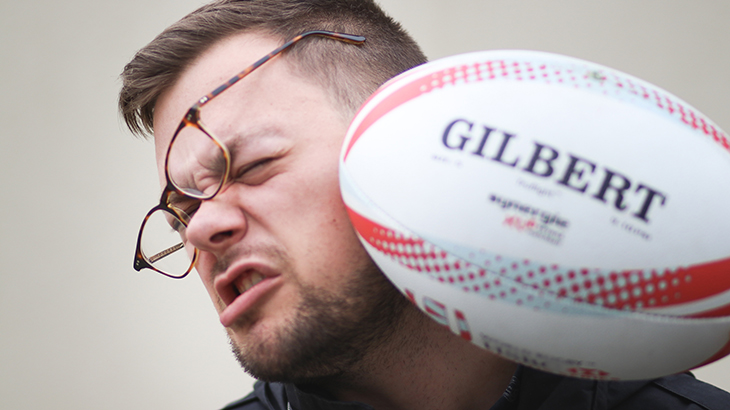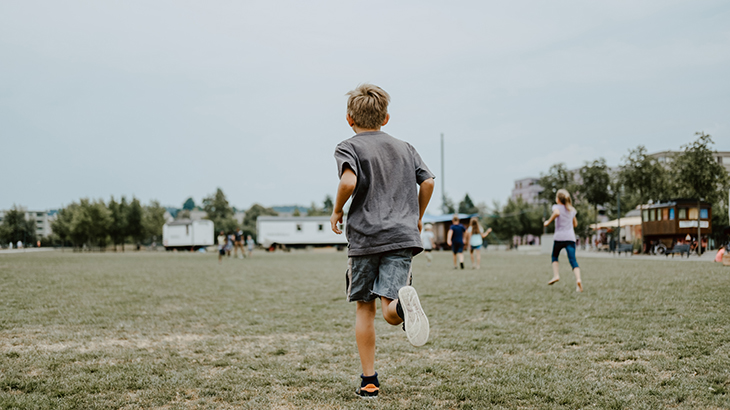Agree with your thinking
Does contact sport have a future in New Zealand?

Contact sport. Here to stay? Or too dangerous? Here's what our Head of Injury Prevention, Isaac Carlson, thinks.
"In the next generation or two, mankind won't be playing sports like rugby, American football or mixed martial arts."
These are the words of Dr Bennet Omalu in a recent interview with the Sydney Morning Herald. He's the neuropathologist who discovered brain injuries (called chronic traumatic encephalopathy) in American footballers.
Omalu spent years analysing brain injuries sustained during contact sport, so it’s easy to see why he would hold this opinion. And there’s no denying that contact sport involves some level of risk.
But for many New Zealanders, getting rid of contact sport altogether would be hard to imagine.
A rugby nation
Rugby runs through our nation’s veins. Whether you're a fan of the game or not, it’s a contact sport that is deeply entwined with our history and national identity. The All Blacks performing the haka before a game sends chills down many a Kiwi spine.
I’m not sure it’s a sport that will disappear any time soon.
In fact I’d argue that, while it involves risk, playing contact sport offers the chance to learn valuable life lessons. Teamwork, looking out for one another, how to lose gracefully and the value of your body are a few that spring to mind.
So, what about calls to put a higher age limit on contact sport to protect young developing bodies? The reality is all sport carries a risk of injury, but the value and benefits of sport outweigh the risks. Putting an arbitrary age threshold on contact sport could actually create greater risk later on. Children need to develop movement competency to withstand the stresses to their bodies and progress their skills over time.
Our focus needs to be on identifying parts of the game that increase risk and make changes, enforce rules already in place, and improve physical competency and skill training.
Interestingly, research published this week in the Australian Medical Journal shows kids who ride bikes, horses or skateboards are more likely to suffer serious head injuries than those who play team sports. This goes to show you’re not immune from serious risk just because you don’t play a contact sport.
Skateboarding, bike or horse riding worst for serious head injuries in kids
Most injuries are preventable
In many cases injuries are preventable with the right education of players and coaches, and player conditioning.
Here in New Zealand, more and more people are becoming aware of the risks involved in contact sport. And we're taking steps to reduce the incidence and severity of serious injuries.
We are seeing a reduction in some serious injuries
If you look to the past, serious injuries in contact sports - like rugby - were much more frequent.
Taking rugby as our example, in the five-year period between 1996 and 2000 we reached a high of 16 permanently disabling spinal injuries. Since then, we’ve seen the number of these catastrophic injuries trending downward. This year, touch wood, there has not been a single permanently disabling spinal injury.
In the last five years there has been six serious injuries, such as tetraplegia and traumatic brain injury, in total.
Much of this is down to work ACC and its partners like New Zealand Rugby have put into preventing injuries before they happen. The RugbySmart injury prevention programme is a great example.
RubgySmart - a key ingredient in bringing down injury numbers
RugbySmart is a set of simple resources and tools you can find online at rugbysmart.co.nz. The goal is to teach players, coaches and refs how to keep players injury free and get the most out of their game.
It focuses on skills like proper scrum engagement, neck strengthening, safe tackle technique and how to recognise and treat concussion.
Between 2014-2017 the volume of ACC claims for concussion rose by 21%. This likely means that more are being reported, rather than more being suffered. Early recognition and management are essential for improving outcomes in concussion, which is a big part of RugbySmart. In 2018 for the first time in three years we saw that number start trending downwards with a 7% decrease in reported concussion.
RugbySmart grew out of our ACC SportSmart programme, which has resources you can use for any sport or activity.
We drew on some clever people to put the ACC SportSmart resources together. Academics, clinicians, sports administrators – you name it.
With help from partners in other sports, we've created further code-specific versions. These include Netball, Touch Rugby, Rugby League and Football/Soccer. All are available through the ACC SportSmart website.
We’ve achieved a lot. But by no means are we perfect.
We still need more Kiwis to be preparing and conditioning for contact sport. This is vital if we're to continue reducing the incidence and severity of injury.
At ACC we're focusing on building awareness of the ACC SportSmart programmes. Not enough coaches, players and parents know about these resources.
Getting the word out about ACC SportSmart
We’re grabbing any opportunity we can to get the ACC SportSmart message out there.
For example, next month 11,500 kids aged between 11 – 13 will be descending on Tauranga for the AIMS Games. It’s the biggest sporting event of its kind in the southern hemisphere.
Opportunities like this give us unprecedented access to kids to teach them about staying safe from injury particularly in contact sports. I’m excited about the chance to reach kids young enough to get them learning good injury prevention habits for life.
We’re also reaching out to coaches, teachers and parents in the lead up to AIMS to talk about preventing injuries. One example is our campaign to educate coaches and parents about concussion, what it looks like for kids and what to do if you suspect it.
I think contact sport is here to stay
So, will contact sport die out in this country? I think it’s hard to see a future like that in New Zealand.
But we need to wake up to the reality of the risk that playing contact sport poses.
While ACC has an important role to play in helping reduce the risks, it’s down to all of us as individuals to work on this together.
You can play a part in reducing the risk of injury in people who play contact sports by helping people learn about injury prevention. Tell your friends and family about the ACC SportSmart programmes.




